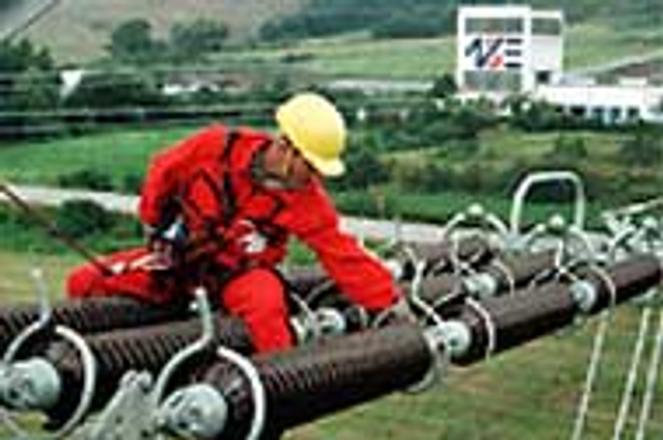The government-guaranteed loan will stabilise SE before privatisation.photo: TASR
The government June 28 provided a guarantee for a 4.1 billion Slovak crown ($91.7 million) loan to the monopoly power monolith Slovenské elektrárne (SE) in a bid to clean up SE's non-performing loan portfolio and boost the companyşs cashflow.
According to government officials, a series of state-guaranteed loans for SE had been planned in advance in order to restructure the companyşs loan portfolio before SE's transformation and subsequent privatisation process begins in January next year. "It will help the SE loan portfolio to recover by replacing old and sometimes unfavourable loans which SE took in the past," said Peter Benčúrik, a spokesman for Economy Minister Ľubomír Harach.
The five-year loan, with an 11.7% interest rate, will be provided by the state-owned bank Slovenská sporiteľňa, and is the third government-guaranteed loan extended to SE this year. In total, the government has guaranteed loans in the value of 8.1 billion crowns ($180 million) for the electricity producer in 2000.
Despite the size of the loan, the move has been widely praised as a solid boost to the company, aimed at stabilising the power utility until a foreign investor can be found. "It is better to put a company on the block when it is clean and functioning, rather than when it is under financial presssure," said Michal Benák, a partner with Bratislava-based mergers and acqusitions firm Navigator.
SE made a profit of almost 2 billion crowns ($44.7 million) for the first quarter of this year - a massive turnaround on the same period last year when the company found itself 2.1 billion crowns ($47 million) in the red.
Despite the positive figures, Benák said that SEşs poor recent economic performance and tight cashflow were thorns in the company's side, and added that the fact the utility needed such huge loans were evidence of real financial troubles. "With these loans we can create a more realistic picture of where SE is now. It's the price that has to be paid for the slow restructuring process in the company," Benák said.
Benák explained that following three hefty hikes in electricity prices in the last year, SE had had few problems turning a profit, but given the investments and other loans the company has to pay back, SE's cashflow had come under pressure. "These three [profit, investments and loans] are not harmonised in the case of SEşs cashflow. The reason for this is that some SE projects have been carried out slower than was expected and some were even cancelled," Benák said.
The Economy Ministry recently criticised the extent of SE's non-performing investments, which amount to hundreds of billions of crowns related chiefly to the Mochovce nuclear power plant. The ministry also noted that SE would have to cover expensive projects such as the shut-down of the V-1 reactor block of another power plant in Jaslovské Bohunice, and was still on the hook for debts incurred in the operation of the Gabčíkovo hydroelectric dam.
At a July 3 meeting, Slovakia's 'economic' ministers called for an improvement in the company's performance. However, a full report on SE's finances has been classified confidential and had an information embargo slapped on it.
Recently appointed SE Director Vincent Pillár has said that privatisation is the best cure for SE's economic troubles. "SE's indebtness can only be solved by the entrance of a strong strategic investor who will raise SE in the eyes of our creditors," Pillár said.
The concept for SE's transformation prepared by the Economy Ministry envisages the separation of SE and its heating utilities and regional distribution outlets - Západoslovenské, Stredoslovenské and Východoslovenské energetické závody - and the transformation of the latter into joint stock companies in January next year. A privatisation manager, slated to be chosen later this year, will then help the government to privatise a 49% stake in each of these regional utilities. SE will then be stripped of everything except its energy production facilities, including the controversial power plants in Mochovce and Jaslovské Bohunice.
For now, Benák said, the situation in SE has slightly improved following the recall of former director Štefan Košovan and other supervisory and directors' board members in March this year. The move followed a four month audit of SE carried out by the Economy Ministry, which revealed serious shortcomings in the way SE handled tenders, as well as bad financial discipline and poor budgetary management.


